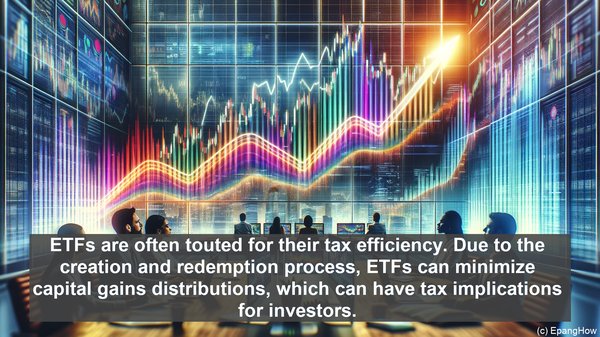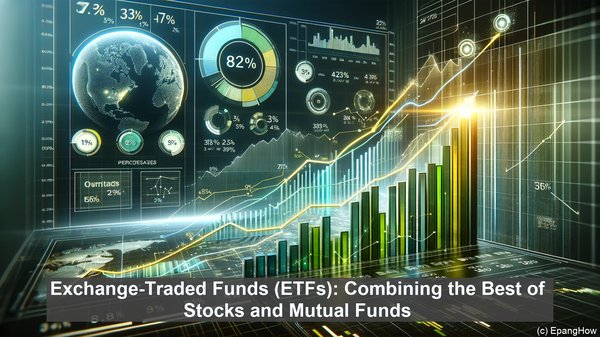Introduction: The Basics of Investing
Hello and welcome to our video on mutual funds and exchange-traded funds (ETFs). Before we dive into the differences between these two investment options, let’s start with the basics. When it comes to investing, the goal is to grow your wealth over time. While there are various investment vehicles available, mutual funds and ETFs have gained significant popularity due to their accessibility and potential for diversification.
Mutual Funds: A Collective Investment Approach
Mutual funds are investment vehicles that pool money from multiple investors to create a diversified portfolio of stocks, bonds, or other assets. They are managed by professional fund managers, who make investment decisions on behalf of the investors. One of the key advantages of mutual funds is their ability to offer instant diversification. By investing in a mutual fund, you essentially own a portion of the underlying assets, proportionate to your investment. This diversification helps mitigate the risk associated with investing in individual securities.
Types of Mutual Funds
Mutual funds come in various types, each with its own investment objective. For example, there are equity funds that primarily invest in stocks, bond funds that focus on fixed-income securities, and balanced funds that have a mix of both. Additionally, there are index funds that aim to replicate the performance of a specific market index, such as the S&P 500. The expense ratio, which includes the fund’s operating expenses, is an important factor to consider when choosing a mutual fund.
Exchange-Traded Funds (ETFs): Combining the Best of Stocks and Mutual Funds
ETFs, on the other hand, are a relatively newer investment vehicle. Like mutual funds, they offer diversification by pooling investors’ money. However, unlike mutual funds, ETFs are traded on stock exchanges, just like individual stocks. This means that their prices fluctuate throughout the trading day, based on supply and demand. ETFs are designed to track the performance of a specific index or sector. For example, there are ETFs that track the technology sector or the gold market.
Key Advantages of ETFs
ETFs have several advantages that make them attractive to investors. Firstly, their intraday tradability provides flexibility, allowing investors to buy or sell shares at any point during market hours. This is in contrast to mutual funds, where transactions are typically processed at the end of the trading day. Additionally, ETFs often have lower expense ratios compared to actively managed mutual funds. This is because ETFs aim to replicate an index’s performance, rather than relying on active management.

Understanding the Creation and Redemption Process
One of the unique features of ETFs is the creation and redemption process. Authorized Participants (APs), typically large financial institutions, play a crucial role in this process. When there is demand for new ETF shares, APs create new units by assembling a basket of the underlying securities. Conversely, when there is excess supply, APs can redeem ETF shares by returning the underlying securities to the fund. This creation and redemption mechanism helps keep the ETF’s price in line with its net asset value (NAV).
Tax Efficiency: A Potential Advantage of ETFs
ETFs are often touted for their tax efficiency. Due to the creation and redemption process, ETFs can minimize capital gains distributions, which can have tax implications for investors. In contrast, mutual funds may distribute capital gains to their shareholders, even if they haven’t sold any securities within the fund. This can create a tax liability for mutual fund investors, especially in a year when the fund has realized significant gains.

Choosing Between Mutual Funds and ETFs
When it comes to choosing between mutual funds and ETFs, there is no one-size-fits-all answer. It ultimately depends on your investment goals, risk tolerance, and preferences. If you prefer a hands-off approach and want professional management, a mutual fund might be a better fit. On the other hand, if you value intraday tradability and potentially lower expense ratios, ETFs could be more suitable. Some investors even choose to have a combination of both in their portfolio, leveraging the unique benefits of each.
